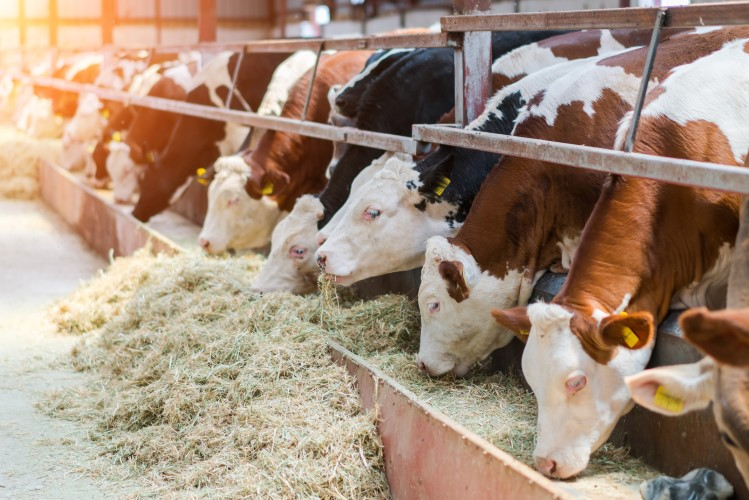In the evolving field of modern dairy farming, maintaining optimal health and productivity of dairy cows is crucial for successful operations. One innovative approach to improving dairy cow health is the use of microbial supplements. These supplements have gained prominence due to their ability to enhance gut health, support immune function, and improve overall dairy cow performance. This article explores the benefits of dairy cow microbial supplements and their role in modern dairy farming.
Understanding Dairy Cow Microbial Supplements
Dairy cow microbial supplements are formulated products containing beneficial microorganisms, including bacteria and yeasts, that are designed to enhance the health and efficiency of dairy cows. These supplements are introduced into the cow’s diet to support digestion, improve nutrient absorption, and promote a balanced gut microbiota. By fostering a healthy digestive system, these microbial supplements contribute to the overall well-being and productivity of dairy cows.
Enhancing Digestive Health
One of the primary benefits of dairy cow microbial supplements is their positive impact on digestive health. The digestive system of dairy cows is complex, involving the rumen, reticulum, omasum, and abomasum, each playing a critical role in nutrient breakdown and absorption. Beneficial microorganisms introduced through microbial supplements help to optimize rumen function by breaking down fibrous plant materials more efficiently. This leads to improved nutrient utilization, enhanced feed conversion, and increased milk production.
Microbial supplements also play a crucial role in mitigating digestive disorders such as bloat and acidosis. By maintaining a balanced microbial population in the rumen, these supplements help stabilize the rumen pH and reduce the risk of digestive imbalances. This proactive approach to digestive health management can result in fewer veterinary interventions and lower treatment costs.
Supporting Immune Function
A robust immune system is essential for dairy cows to resist diseases and infections, particularly in high-stress environments. Dairy cow microbial supplements support immune function by promoting a healthy gut microbiota, which in turn influences systemic immunity. A balanced gut microbiome contributes to the production of beneficial metabolites that support the immune system’s ability to respond to pathogens effectively.
Research has shown that microbial supplements can enhance the production of immunoglobulins, which are critical components of the immune response. By improving immune function, these supplements help reduce the incidence of common dairy cow ailments, such as mastitis and respiratory infections, leading to better overall herd health and productivity.
Improving Reproductive Performance
Reproductive performance is a key factor in the profitability of dairy farming. Dairy cow microbial supplements can indirectly contribute to better reproductive outcomes by improving overall health and reducing the incidence of reproductive disorders. A healthy digestive system and balanced immune function positively impact reproductive efficiency.
For instance, microbial supplements can help reduce the occurrence of metabolic disorders, such as ketosis, which can negatively affect fertility. By maintaining optimal metabolic health, these supplements support the cow’s reproductive cycles and enhance conception rates. Consequently, dairy farmers can experience higher pregnancy rates and fewer reproductive challenges.
Enhancing Milk Quality and Yield
The primary goal of dairy farming is to produce high-quality milk in optimal quantities. Dairy cow microbial supplements contribute to this goal by improving feed efficiency and nutrient absorption, which directly impacts milk yield and quality. Cows that receive microbial supplements often exhibit higher milk production and improved milk composition, including better fat and protein content.
Furthermore, microbial supplements can influence the flavor and shelf life of milk. A healthier digestive system and reduced incidence of digestive disorders contribute to the production of high-quality milk with fewer off-flavors or contaminants. This not only benefits the dairy farm but also enhances consumer satisfaction with the final dairy products.
Conclusion
The integration of dairy cow microbial supplements into modern dairy farming practices offers a range of benefits that significantly enhance dairy cow health and productivity. From improving digestive health and supporting immune function to boosting reproductive performance and enhancing milk quality, these supplements play a vital role in optimizing dairy farm operations. As the dairy industry continues to evolve, the strategic use of microbial supplements represents a forward-thinking approach to achieving sustainable and profitable dairy farming.
By investing in dairy cow microbial supplements, dairy farmers can harness the power of beneficial microorganisms to ensure their herds remain healthy, productive, and resilient in the face of the challenges of modern dairy farming.




